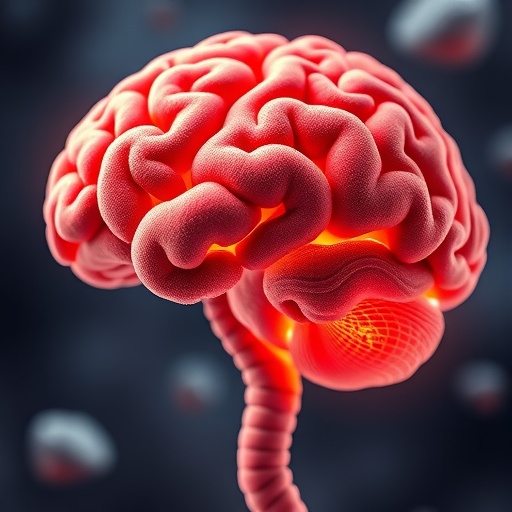Recent advancements in the understanding of the gut-brain axis have led researchers to explore innovative treatment strategies for neurodegenerative diseases such as Alzheimer’s disease. A recent study led by Upadhyay and colleagues presents compelling evidence that modification of the gut microbiome through fecal transplants can unveil new therapeutic avenues in Alzheimer’s disease models. This innovative approach adds a new dimension to the ongoing battle against cognitive decline associated with this debilitating condition.
The human gut is home to trillions of microorganisms, collectively known as the gut microbiome. These microorganisms play essential roles in various bodily functions, including metabolism and immune response. In recent years, an emerging focus has been placed on the correlation between the gut microbiome and neurological health. Studies have shown that the gut microbiota can influence neuroinflammation, neurotransmitter production, and even neurogenesis, suggesting a significant link between gut health and brain function.
Understanding the pathophysiology of Alzheimer’s disease is crucial for developing effective treatment options. Alzheimer’s is characterized by the accumulation of amyloid-beta plaques and tau tangles in the brain, leading to neurodegeneration and cognitive decline. While several pharmacological treatments have been tested, none have effectively stopped or reversed the disease progression. Therefore, alternative strategies, such as fecal microbiota transplantation (FMT), have garnered interest as potential therapeutic options.
In the study conducted by Upadhyay et al., the researchers utilized animal models of Alzheimer’s disease to investigate the effects of FMT on cognitive function and microbiome composition. Remarkably, fecal transplants from healthy animals to those exhibiting Alzheimer’s symptoms resulted in observable improvements in cognitive performance. This finding implies that a healthy gut microbiome might exert a protective effect against neurodegeneration and cognitive decline.
Intriguingly, it was determined that fecal transplantation not only altered the gut microbiome composition of the recipients but also influenced the levels of inflammatory markers in the brain. In essence, the beneficial bacterial strains introduced through transplantation seemed to reduce neuroinflammation, which is a hallmark of Alzheimer’s disease. This reduction can potentially halt further neuronal damage and promote neural health, elevating the potential for recovery of cognitive functions.
The implications of these findings extend beyond just Alzheimer’s disease. They open the door to an entirely new paradigm in treating various neurodegenerative disorders. Given the intricacy of the gut-brain axis and its role in modulating brain health, harnessing the power of the microbiome could enable a range of therapeutic options for conditions such as Parkinson’s disease, multiple sclerosis, and even psychiatric disorders like depression and anxiety.
Furthermore, this novel approach encourages a shift from the traditional perception that brain diseases are solely a result of intrinsic neural deterioration. The evidence presented by Upadhyay and colleagues encourages us to view the microbiome as an integral component of neurological health. For patients, this means a broader range of treatment possibilities, shifting the conversation towards holistic health interventions that encompass diet, lifestyle, and microbiome management as fundamental aspects in combating neurodegenerative diseases.
As research progresses, attention will need to be paid to the specifics of what constitutes a ‘healthy’ gut microbiome. The study highlights that not all bacteria play beneficial roles and emphasizes the importance of carefully selecting bacterial strains for fecal transplants. Future studies aiming to identify which specific bacteria or combinations thereof are effective could lead to more targeted interventions that maximize therapeutic outcomes for patients suffering from cognitive decline.
This research also raises questions regarding accessibility and practicality in clinical settings. Fecal microbiota transplantation, while promising, faces challenges surrounding its standardization, the ethics of donor selection, and implementation in routine medical practice. Regulatory frameworks will need to evolve to navigate these challenges, ensuring that therapies derived from gut microbiome research can be safely and effectively translated into clinical use.
Concurrently, this study highlights an urgent need for more extensive clinical trials in human subjects. As we stand on the precipice of what could be groundbreaking advancements in Alzheimer’s treatment, it is vital to ensure that findings from animal models translate effectively to human physiology. Only through rigorous testing can we ascertain the true potential of fecal transplants in managing Alzheimer’s disease and its related cognitive decline.
In conclusion, the research spearheaded by Upadhyay and his team represents a glimpse into a potentially transformative approach in Alzheimer’s treatment through gut microbiome manipulation. As understanding deepens, the possibility of rewiring the gut microbiome presents an exciting frontier not only for Alzheimer’s disease but potentially for a spectrum of neurodegenerative and psychiatric conditions as well. As researchers continue to unravel the complexities of the gut-brain axis, we may find ourselves on the cusp of a new age in brain health management.
By fostering a dialogue between microbiology and neuroscience, this study may ignite further inquiry and exploration into how such interventions can be seamlessly integrated into existing healthcare paradigms. As the exploration of the gut-brain relationship advances, we are reminded of the interconnectedness of bodily systems and the profound impact that lifestyle, diet, and microbiome health can have on our neurological fate.
In the realm of neurodegenerative diseases, hope lies not only in pharmaceutical interventions but also in rethinking how we approach brain health as a holistic endeavor rooted in the complexity of our microbiome.
Subject of Research: Gut Microbiome and Alzheimer’s Disease
Article Title: Gut Microbiome rewiring via fecal transplants: Uncovering therapeutic avenues in Alzheimer’s disease models.
Article References:
Upadhyay, P., Kumar, S., Tyagi, A. et al. Gut Microbiome rewiring via fecal transplants: Uncovering therapeutic avenues in Alzheimer’s disease models.
BMC Neurosci 26, 39 (2025). https://doi.org/10.1186/s12868-025-00953-9
Image Credits: AI Generated
DOI: https://doi.org/10.1186/s12868-025-00953-9
Keywords: Gut microbiome, fecal transplantation, Alzheimer’s disease, neurodegenerative disorders, cognitive function.
Tags: alternative strategies for Alzheimer’s treatmentamyloid-beta plaques and tau tanglesfecal microbiota and neurogenesisfecal transplants for Alzheimer’s therapygut-brain axis and neurodegenerationinfluence of gut health on cognitive functioninnovative treatment strategies for Alzheimer’smicrobiome modification in cognitive declineneuroinflammation and Alzheimer’s diseaserole of gut microbiome in brain healththerapeutic avenues in neurodegenerative diseasesunderstanding Alzheimer’s pathophysiology





